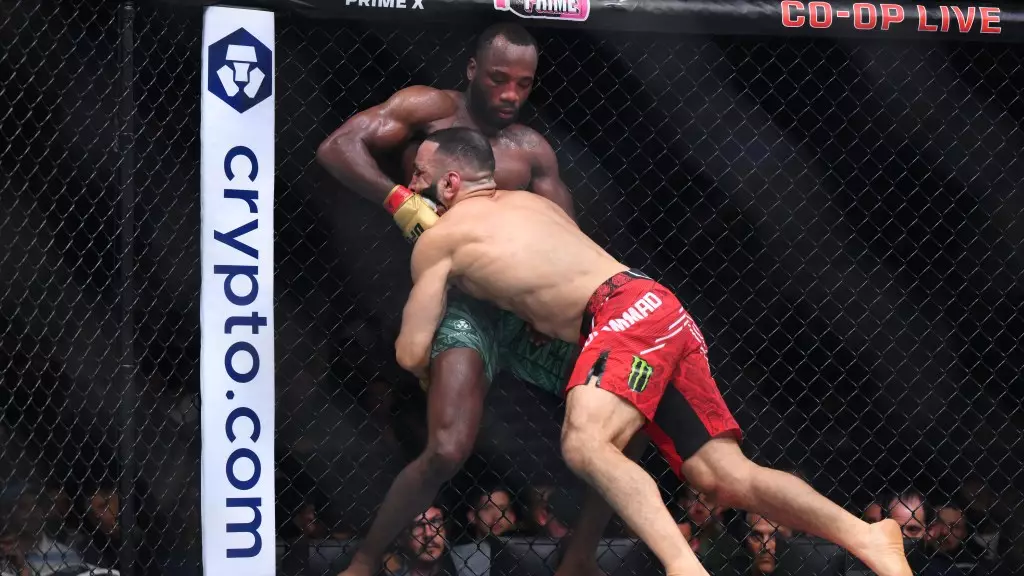The conversation surrounding performance in high-stakes sports is often layered and complex, particularly in Mixed Martial Arts (MMA). The recent bout between Leon Edwards and Belal Muhammad, which saw Edwards lose his welterweight title to Muhammad at UFC 304, sparked a debate over the impact of timing on fighters’ performances. Edwards suggested that the schedule of the fight, held late at night to cater to U.S. audiences, left him feeling fatigued and diminished his performance. Such assertions open the door to a deeper analysis about the variables that can influence performance in the octagon.
Jack Della Maddalena, a rising star in the UFC welterweight division, has voiced his disagreement with Edwards’ perspective, arguing that attributing defeat to external factors such as fight timing undermines the strategies and skills implemented by opponents. Della Maddalena believes that the way Muhammad executed his winning game plan—a strategy that appeared to capitalize on pacing and pressure—was integral to the fight’s outcome. This perspective highlights a fundamental truth in competitive sports: the effectiveness of a fighter’s strategy often directly correlates with their ability to adapt and respond to their opponent’s style, irrespective of external circumstances.
As Della Maddalena prepares to face Edwards in the upcoming UFC Fight Night 255, scheduled for March 22, he reflects on Muhammad’s successful approach during their match. Della Maddalena intends to emulate this strategy, aiming to push Edwards against the cage and dictate the pace of the fight. His intent to “make it ugly” points to the importance of psychological and physical pressure, which can profoundly affect a fighter’s performance. By relying on Muhammad’s template, Della Maddalena not only displays respect for Muhammad’s tactics but also asserts his intent to leverage similar strategies to disrupt Edwards’ rhythm.
The mindset of a fighter is equally paramount. Della Maddalena emphasizes his desire to engage actively, focusing on landing powerful strikes rather than obsessing over securing takedowns. This distinction is critical; it underscores a proactive approach to fighting, one that prioritizes aggression and moment-to-moment decision-making. Della Maddalena’s eagerness to “get in the pocket” and engage signifies not just a strategic choice but also a psychological readiness to face challenges head-on, diverging from the narrative of fatigue that Edwards presented.
Moreover, Della Maddalena’s recent inactivity since his knockout victory over Gilbert Burns at UFC 299 reflects another dimension to consider: the impact of layoff periods on performance. Athletes often face myriad mental and physical hurdles following breaks from competition. However, Della Maddalena views this gap as an opportunity to refine his skills and strategize. His confidence in approaching this fight indicates a strong mental framework, essential for success in high-stakes scenarios.
While external factors like timing can influence an athlete’s performance, the efficacy of preparation, strategy, and mindset prove to hold even greater weight. The fight between Edwards and Della Maddalena promises to test these dynamics, providing an exciting insight into the ever-evolving game of MMA.

